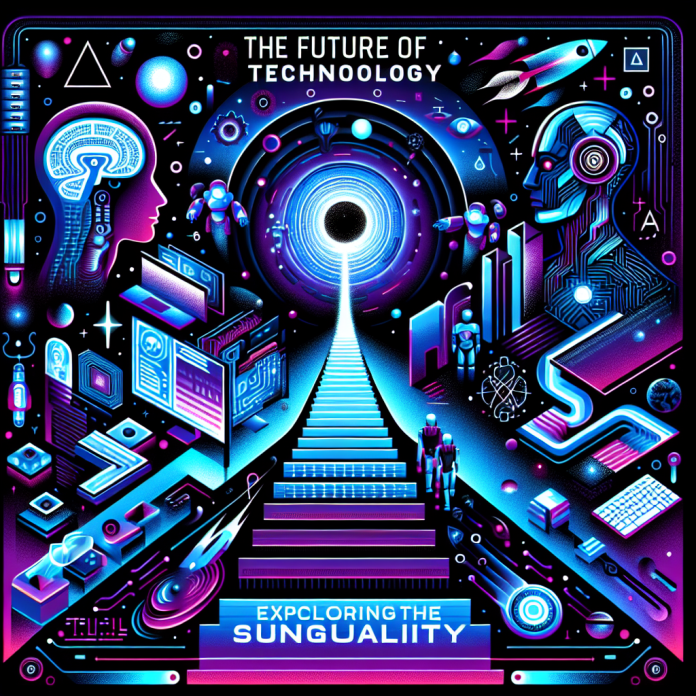**Understanding the Singularity: The Future of Technology**
Imagine a world where artificial intelligence surpasses human intelligence. A world where machines are able to think, learn, and create on a level far beyond our own capabilities. This is the concept of the Singularity, a point in time where technological growth becomes uncontrollable and irreversible, leading to unforeseeable changes in human civilization.
**What is the Singularity?**
The Singularity, as coined by mathematician and science fiction writer Vernor Vinge in the 1990s, refers to the hypothetical moment when artificial intelligence and technology reach a level of sophistication that surpasses human intelligence. This would mark a paradigm shift in the way we live, work, and interact with the world around us.
**The Rise of Artificial Intelligence**
Artificial intelligence has already made significant strides in recent years. From self-driving cars to intelligent personal assistants like Siri and Alexa, AI is becoming an integral part of our daily lives. But what sets the Singularity apart is the idea that AI will eventually outstrip human intelligence in all areas, including creativity and problem-solving.
**Implications of the Singularity**
The idea of the Singularity raises many questions and concerns about the future of humanity. Will AI be able to coexist peacefully with humans, or will it see us as a threat to its own existence? Will we be able to control and regulate the development of AI, or will it spiral out of control, leading to unforeseen consequences?
**Real-World Examples of the Singularity**
One real-world example of the Singularity in action is the field of robotics. Companies like Boston Dynamics have created robots that can perform tasks once thought to be solely in the realm of human abilities, such as running, jumping, and even dancing. As these robots become more advanced and autonomous, they raise questions about the ethical implications of creating machines that are capable of acting independently.
**The Turing Test**
One way to gauge the progress of AI towards the Singularity is through the Turing Test, developed by Alan Turing in 1950. The test involves a human judge interacting with a machine and a human through a text-based interface, with the goal of determining which is which. If the machine is able to convince the judge that it is human, it is considered to have passed the test.
**Ethical Considerations**
As we move closer to the Singularity, ethical considerations become increasingly important. How do we ensure that AI is used in a way that benefits humanity, rather than harms it? Should there be limits on the development of AI, or should we allow technology to progress unchecked? These are questions that we must grapple with as we approach this technological milestone.
**The Dangers of the Singularity**
One of the biggest concerns surrounding the Singularity is the idea of artificial superintelligence – a level of AI that surpasses human intelligence by orders of magnitude. This kind of intelligence could have unpredictable and potentially dangerous consequences, leading to scenarios like a rogue AI takeover or a complete restructuring of society as we know it.
**Preparing for the Future**
As we approach the Singularity, it is important to start thinking about how we can prepare for the changes that are coming. This includes investing in research and development of AI ethics, creating regulations to ensure the responsible use of AI, and fostering a dialogue between experts, policymakers, and the general public about the implications of this technology.
**Conclusion**
The Singularity represents a tipping point in human civilization, where artificial intelligence surpasses human intelligence and fundamentally changes the way we live. While the concept of the Singularity may seem like something out of science fiction, it is becoming increasingly real as AI continues to advance at a rapid pace. By understanding the implications of the Singularity and taking steps to prepare for the future, we can ensure that we navigate this technological milestone in a way that benefits humanity as a whole.

